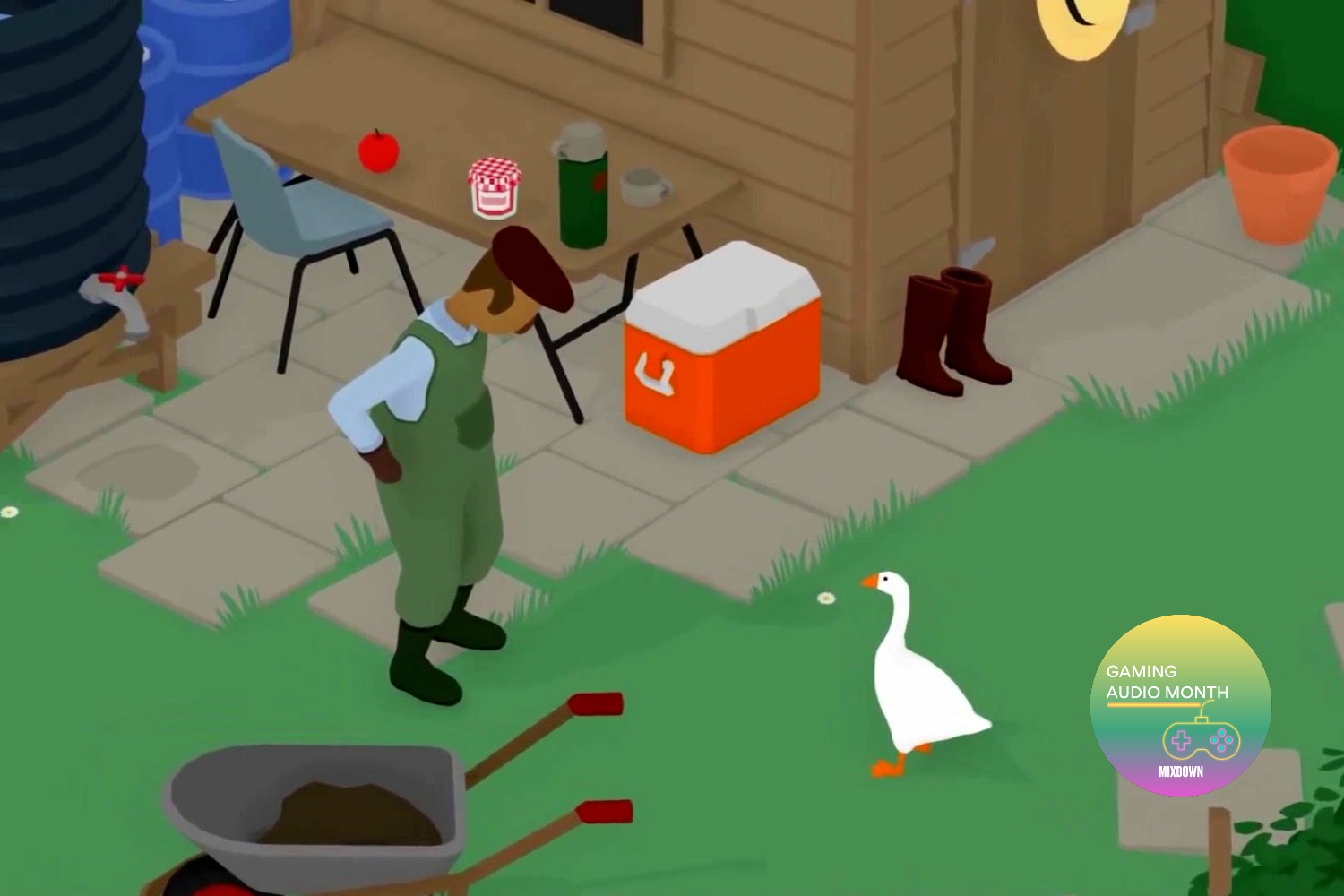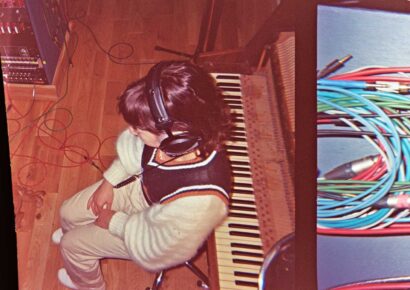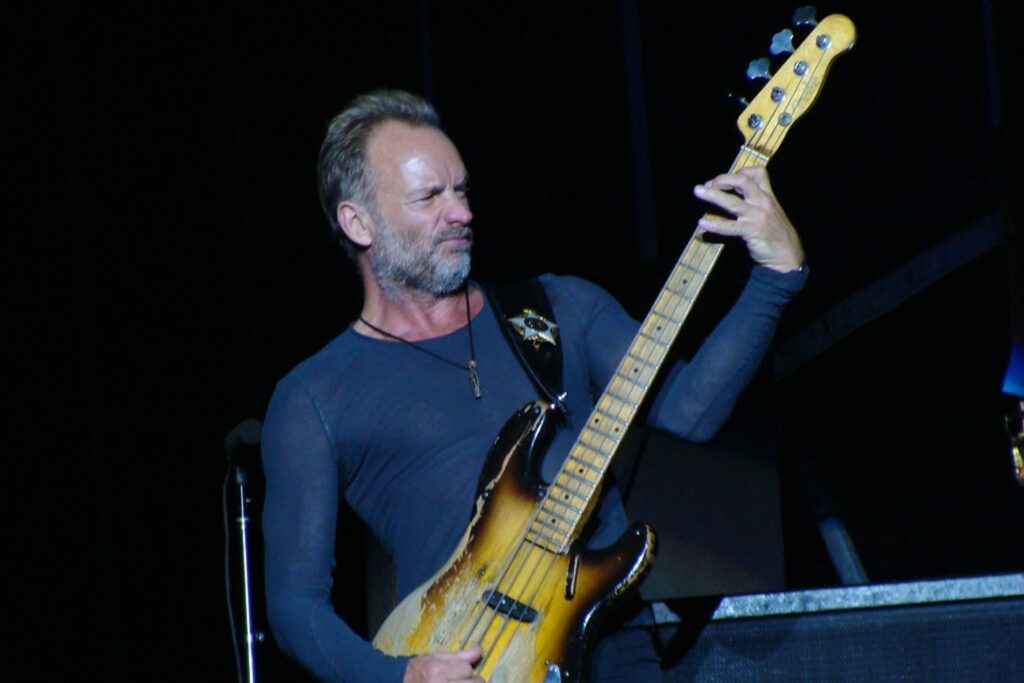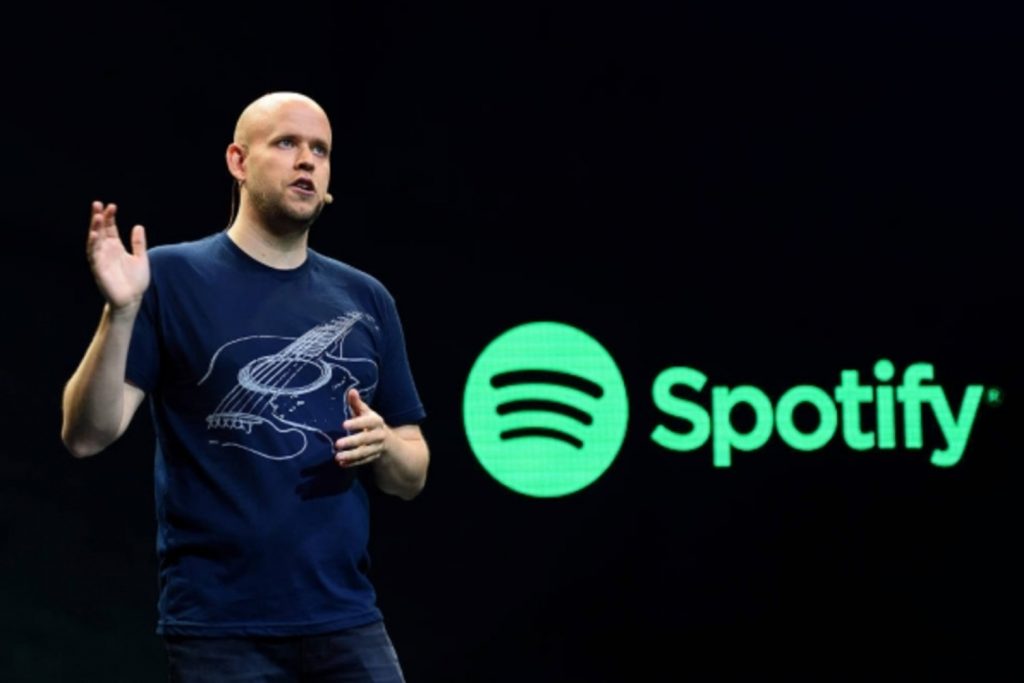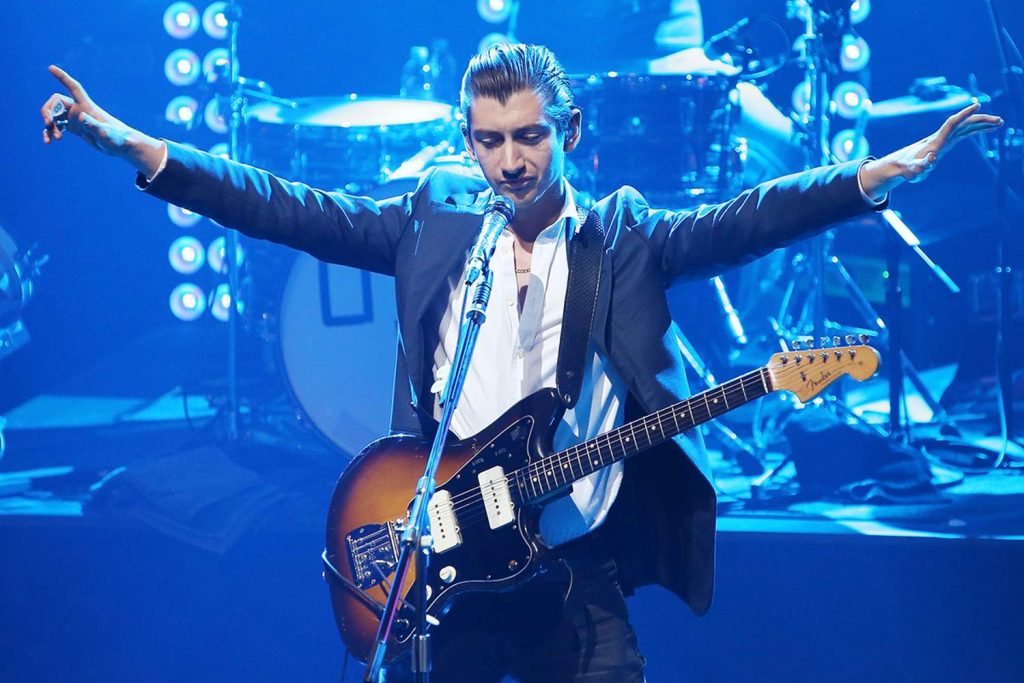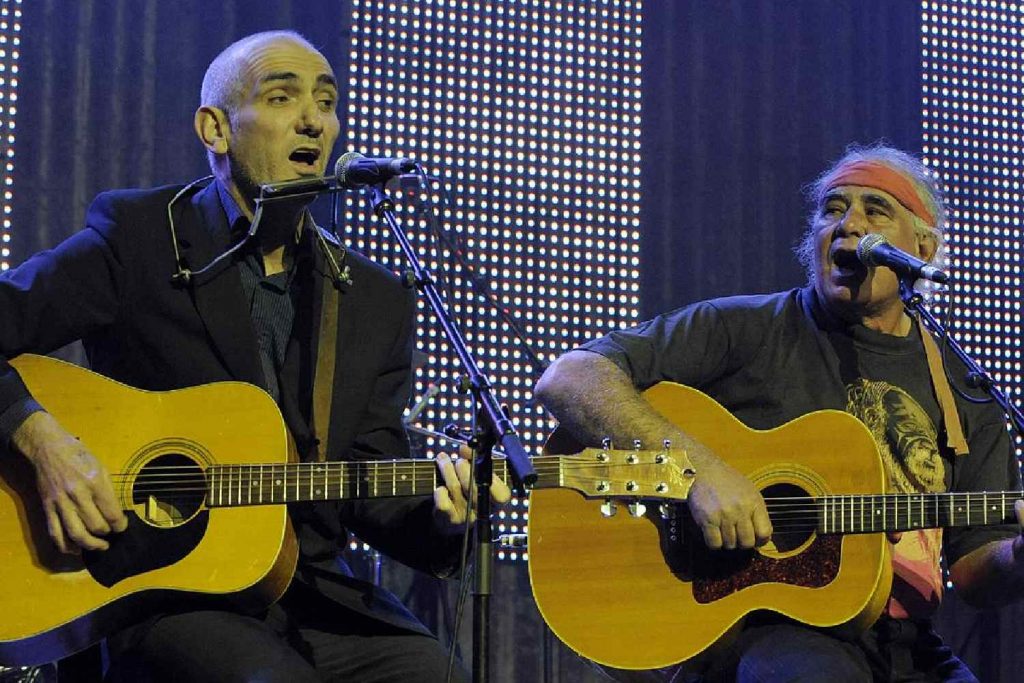We chat all things Untitled Goose Game with the acclaimed Australian composer, writer, presenter and academic.
It’s often the last thing you’re probably thinking about while quick-scoping or spamming the F button, but music can have a major impact on the way we play video games. Whether it’s the serene sounds of The Ocarina Of Time, the chugging heavy metal guitars of Halo 2 or any array of pop hit tacked onto the FIFA series, music in gaming is a field that’s only going to keep growing, and perhaps surprisingly, us Aussies are among some of the best in the business.
Untitled Goose
One of the greatest stories in Aussie gaming in recent years is the breakout success of Melbourne independent developers House House and the Untitled Goose Game; a game so unique and bizarre that when the trailer dropped back in 2017, the internet just didn’t know what to make of it. Naturally, it went viral, and three years later, Untitled Goose Game is now recognised as an international hit, with many gamers considering it to be one of the best independent titles released in years.
Claude Debussy
In a nutshell, Untitled Goose Game sees the player assume the role of a pesky goose who journeys around a village and terrorises its civilians while a jaunty piano melody based on French composer Claude Debussy’s famous preludes plays in the background, with the intensity of the piano fluctuating in accordance with the amount of chaos the goose is causing. It’s a concept that sounds silly on paper, but in reality, it’s a masterstroke in reactive scoring: one only needs to visit the comments section on any Untitled Goose Game YouTube video to discover just how much its players adore the game’s use of Debussy to counter the pesky goose’s movements.
In the wake of his recent keynote address at APRA’s High Score gaming summit, we spoke with Dan Golding, the brains behind the score of the acclaimed game, to find out more about his background in academia, reactive scoring, re-contextualising Debussy and everything else concerning the crossover between music and gaming.
Read up on all the latest interviews, features and columns here.
First of all, congratulations on the success of the Untitled Goose Game – it’s been amazing watching just how big of a phenomenon it’s become in such a short time. When you first started working on the project, did you have any kind of inkling that it was going to make a mark as big as it has?
No, not really! I was actually looking back over some of the emails from when we started the other day to find a document that was part of them, and it was such an unassuming conversation. The guys were like ‘We kind of like this piece of music and it’s in the public domain – could you make a recording and we’ll chuck it on the radio for the game’s trailer?’. I said yes, and that was about as deeply as I thought of it at the time; I’d worked with House House on their first game Push Me Pull You, so it was nice to feel like I was doing this work with them again.
But then that first trailer just went off in a way that I absolutely wasn’t expecting – to be fair, I don’t think anybody was expecting it – and seeing all the comments about the music was amazing. Jacob Strasser, who works at House House edited the trailer incredibly well, and made it seem like the music was reacting to the game, when it actually really wasn’t at all. Because there was such a strong response to that element of that trailer, we all sat down afterwards when the dust began to settle and were like ‘well, I guess we need to figure out how to actually make this happen in the game’, because none of us knew how to do reactive music at that point.
Tell us about how reactive composition works – as a musician or a composer, how did you approach the task of matching the action that was happening onscreen?
I can try! I’ve been finding, especially recently, that explaining reactive music is incredibly complicated. I guess the best way that I’ve been thinking about it is like the overall effect – and this is what we’re deliberately aiming for – is that it’s like watching like a Looney Tunes cartoon or something similar, where the music really closely comments on the action.
In films, that’s called Mickey Mousing, because in the very first Mickey Mouse cartoons, there’s this incredibly tight relationship between the animation and the music, literally like frames per second being counted against beats per second. We wanted to kind of create that sense that there was a pianist watching what you were doing in the game, and commenting on it with their performance.
The way that we ended up achieving that after a lot of dead ends and different attempts was by me getting the Debussy music and arranging it to better fit the game. I did two performances: one which was really high energy, and one which was quite laidback, and then cut them up into lots of tiny little sections.
When you’re playing the game, it’s basically observing how much mischief you’re up to as the goose, and it translates that to ‘Should I play the high energy version of the music? Should I play the low energy version of the music, or should it be silence?’ and the game can transition between all of those little stems on the fly, to the degree where effectively, there’s an infinite number of variations. Does that make sense?

I think so! I’m quite interested as to why Debussy was chosen as the recurring thread for the score of such a modern game. Can you explain why he was the composer that was used for the game?
Yes, so Debussy was the idea of House House – I think Nico Dissledorp had been listening to some of the preludes just idly while doing game dev, and he thought that those first pieces in the game were kind of funny. He just kind of mentally filed that away in his brain as a possibility, and so when it came time to put something on the radio in that first trailer, he was like ‘oh yeah, that would be something that a gardener could be listening to on the radio’.
When Jacob implemented my performance into the trailer, I guess it sounded like silent film music. I’ve done a lot of research into this since then – especially because my other job is being a film studies academic – so I’ve been looking into a lot of this, and it’s likely that Debussy’s music, and possibly even these particular pieces of music, were used by silent film pianists between 1909 and 1912, which was the peak of when pianists or organists used to accompany silent films.
There’s a certain kind of universal slapstick appeal to the kind of humour in those films: it’s not like you need to understand the joke or have the context. Anybody, regardless of where they are or what kind of culture they’re into, they just kind of get it, so that’s kind of why we stuck with that sound.
Is there any particular DAW or selection of equipment that you’d deem essential to your process as a composer?
For sure. As a DAW, I always use Logic X Pro, which I guess just stemmed from having GarageBand when I was younger, and I’ve basically just been using that ever since. For virtual instruments, I use Kontakt, as I think everybody does, and within that, a lot of the Native Instruments suite for all the recording that I do.
Logic X Pro
There’s no distinctive process though, it’s a bit of a mixed bag. Push Me Pull You, which was the soundtrack I did for House House before Untitled Goose Game, was pretty much exclusively actual instruments played by me, because I wanted a really rough sound for that game. I always thought of that soundtrack as being like a bunch of kids who love playing music but couldn’t necessarily do it very well, and you can’t really get that sound with digital instruments, because everything’s too polished.
Between yourself, Kevin Penkin and Power Glove, Australia has become a bit of a hot bed for audio in gaming. What do you think it is about the Australian industry right now that’s seen it involve into this really exciting space for gaming composition?
Yeah, absolutely. I think there’s two real key factors in that. Firstly, Australia has been home to game development, and really creative game development at that, since 1980, which was when the first studio opened in Melbourne. That was Beam Software, and they had a massive global hit only two years later with The Hobbit. There’s almost a direct line you can trace between a lot of the major studios even ten years ago and the ones from the ‘80s, so you’ve got decades of game-making culture and innovation as well.
In 2004, there was a talk at GDC in San Francisco called ‘Do Independent Games Exist?’ and that same year, Free Play, which is Melbourne’s independent games festival had just started. It’s amazing to me that there’s clearly always been a really creative games culture in Australia, and I think we’re really reaping the dividends and benefits of it.
I think it’s a combination of that, but it’s also the fact that games in Australia have always looked outside of the gaming industry, which you don’t really see elsewhere to the same extent. If you talk to a lot of game makers from Melbourne, you can have really great conversations about art history or architecture or music or film in a way that I think really suggests that everybody’s thinking and looking outside their own sphere. I mean, Untitled Goose Game is such a brilliant example of that – none of the developers at House House have any kind of games degrees or training, and I think it really shines through into the game for the better.
We’ve recently been running a content series in conjunction with Dolby International about the growth and technical possibilities of Immersive Audio across the film, gaming and musical domains. In light of the work done in the gaming space, coupled with the massive growth in immersive mixing for classical music, can you see a future where classical score and sound design for gaming meet in the immersive space? Do you think that knowing that your work may end up being mixed in 3D may influence its composition?
I definitely can see that as a possibility. I haven’t experimented with that myself yet, mostly because I don’t have the equipment. Historically, games have always been really good at domesticating technology. I know that’s a weird way to put it, but for instance in the 1980s when you could first buy home computers, nobody knew what you would buy them for. That was the question, like, ‘Okay, I can spend $3,000 on a computer, but what am I going to do with it?’ There wasn’t any internet, you couldn’t hook up a printer – it was hard to figure out what you were actually meant to do with it.
One of the answers to that question that people really quickly stumbled upon was through gaming. Games are a really good way to show off the potentials of new technology and make them a part of our lives. You could say the same thing with smartphones, like how Fruit Ninja showed off the possibilities of having a touch screen for gaming. So I think that games are potentially a really big part of proving the possibility, and showing to people the power of technologies such as immersive audio.
Your keynote at High Score this year was all about humour as it pertains to video game score composition. What’s the secret to evoking a sense of humour in music?
Look, I think it’s really funny – no pun intended – that all my games scores have had an element of comedy to them, because I’m not funny. I’m an academic. I’m about as far away from a comedian as you could possibly imagine! But it was interesting when I sat down to think about this talk, and realised that that was the thing that unites all of the game music that I’ve done. I think music is a really interesting part of comedy in games, but also comedy across other screen media, because I think to be funny with music, you have to be completely serious. The funniest game music happens when the music isn’t really in on the joke.
For instance in Untitled Goose Game, all the preludes were largely written a hundred years ago and certainly not for this context; some are a little lighthearted, but the majority that we’ve used in the game are quite serious. I think it’s that unbeatable combination of music with image that makes music funny, and that makes the image even funnier. Somehow, it’s much more funny than if the music was full of cliches or pratfalls, like sliding trombones or offbeat drum hits.
For sure. To wrap things up, I’d love to hear what you rank as your personal top three game soundtracks of all time. What’s had the greatest influence over your work as a composer, and why?
Great question… I think any of the Nintendo 64 Zelda games, like Ocarina Of Time or Majora’s Mask were super impactful, because not only do they have a kind of filmic sense of the quality of the music, but the music is also interactive in the sense that literally use the Ocarina to interact with the world and complete the game. For me, playing that game as a kid was mind blowing, because not only was the music good, but it also kind of felt like a musical, and I’d never experienced that before.
The Secret of Monkey Island has to be up there as well, just for the way that it pioneered how reactive game music could be done. The LucasArts music team and their SCUMM engines was just industry-changing stuff in terms of how much you could have game music react to what the player was doing, and really provide a kind of unique experience for every player.
Finally, and this is not a score per se, but the FIFA series. I think it’s just so important that those games incorporated contemporary music into them, and I know a lot of people who discovered their favourites songs or artists through these games. Video games are musically part of the same popular culture or even just culture. Some people sort of still seperate gaming from the world of music or film, or vice versa, talking about games as being somewhat separate from the world of music or film or whatever, but I think games are actually such a deep part of that.
Check out Untitled Goose Game for yourself here.
